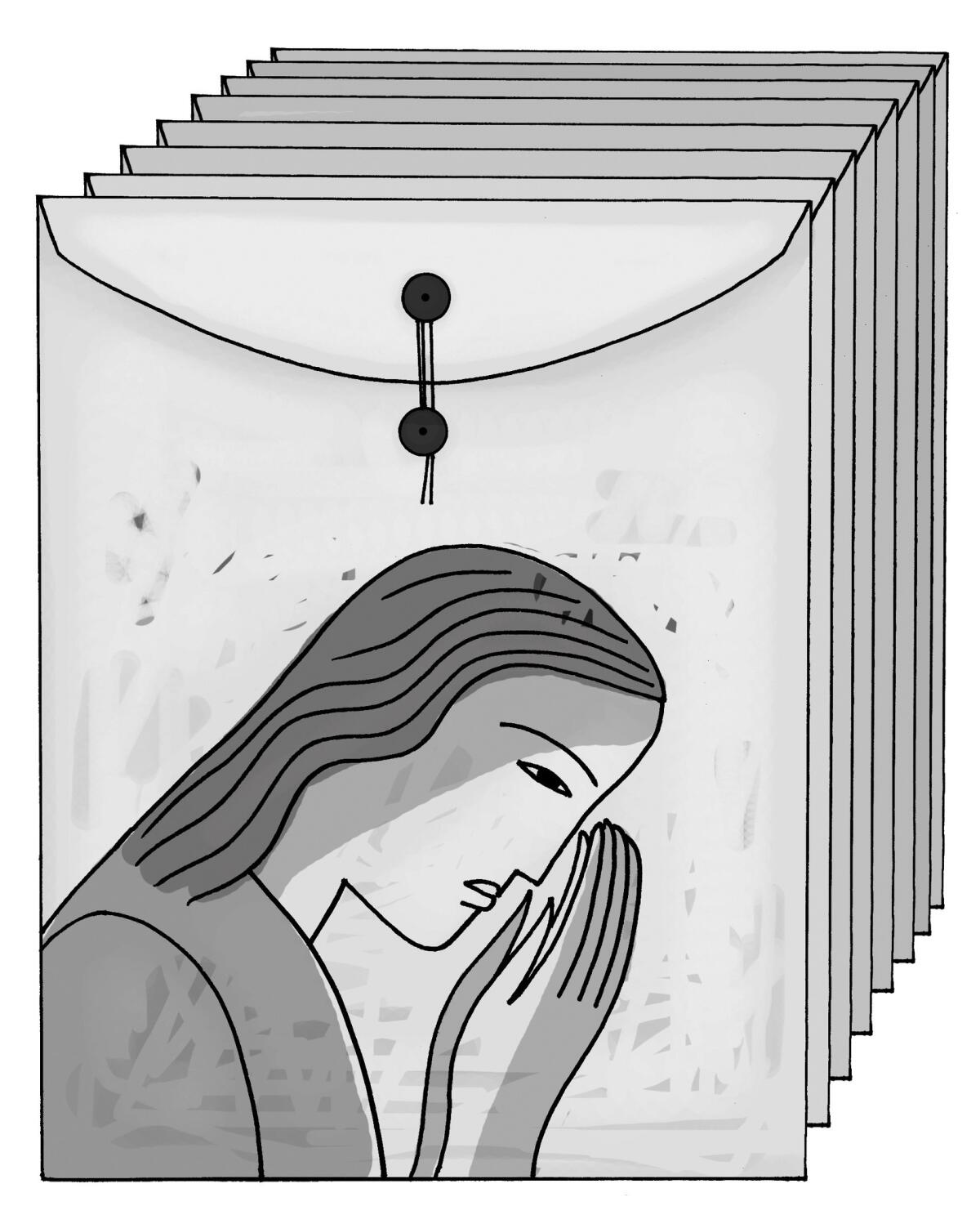UCSB professor vs. antiabortion protester: ‘Trauma trigger’ is no defense

- Share via
Mireille Miller-Young, a feminist studies professor at UC Santa Barbara, has been charged with battery, vandalism and theft after she allegedly stole and destroyed the sign of an antiabortion protester on campus and then pushed and scratched the 16-year-old when she tried to grab her sign back.
It looks like an open-and-shut case. Miller-Young told a police officer who interviewed her after the incident that she had seized and torn up the sign, and there’s a video posted on YouTube that appears to record the March 4 altercation (warning: copious use of the “F-word”). The alleged victim, Thrin Short, told Fox News that Miller-Young had pushed her out of an elevator where Miller-Young and several UCSB students had taken the sign, and that she had suffered several scratches during the ensuing melee. Short had been among a group of about a dozen antiabortion protesters, most of them students at Thomas Aquinas College, a small Catholic institution in Santa Paula, who said they had gathered in UCSB’s “free speech zone” on campus, where such activities are permitted, to hand out information to UCSB students.
But what’s interesting is -- no, it’s not the fact that California taxpayers are underwriting a Department of Feminist Studies” at UCSB where Miller-Young is an associate professor teaching courses bearing such titles as “Sexualities” and “Sexual Cultures Special Topics.”
It’s Miller-Young’s excuse for her deed: that she was “triggered” by images in the protesters’ materials, which reportedly included graphic pictures of aborted fetuses. Here’s what the officer said she told him:
“In essence, Miller-Young told me she felt ‘triggered’ by the images on the posters. Miller-Young stated that she had been walking through the Arbor to get back to South Hall. Miller-Young said she was approached by people who gave her literature about abortion. Miller-Young said that she found this literature and pictures disturbing. Miller-Young said that she found this material offensive because she teaches about women’s ‘reproductive rights’ and is pregnant. She said an argument ensued about the graphic nature of these images. Miller-Young said that she [sic] situation became ‘passionate’ and that other students in the area were ‘triggered’ in a negative way by the imagery.”
“Triggered.” The phrase “trauma trigger” is a word of art in the therapy professions, where it means some word, image, song or even smell that “triggers” a trauma victim’s painful memory of the traumatic event. But as in Miller-Young’s case, the word has been picked by feminists and other progressives to apply to just about anything they happen to find offensive. (You’ll note that Miller-Young didn’t claim to have been a victim of anything, but merely that she was pregnant and apparently a believer in abortion rights.)
Not only is “triggering” supposed to be an excuse for committing crimes against the “triggerer”; it’s also a used weapon for shutting down free speech on campus.
For example, Oberlin College now tells its faculty to “remove triggering material [from reading lists and classroom discussions] when it does not contribute directly to the course learning goals.” And when you feel you must assign, say, a “triggering” book to your class, you’re supposed to issue a “trigger warning” so that ultra-sensitive students can, presumably, skip reading it: “For example, Chinua Achebe’s ‘Things Fall Apart’ is a triumph of literature that everyone in the world should read. However, it may trigger readers who have experienced racism, colonialism, religious persecution, violence, suicide, and more.”
In other words, censorship by the back door, all to protect the delicate sensitivities of people who feel deeply offended by being exposed to views they don’t agree with.
Fortunately, police and prosecutors in Santa Barbara County don’t seem to be buying Miller-Young’s “triggering” defense to committing what might be viewed as “triggering” trauma to someone else. And fortunately as well, UCSB administrators, while not especially sympathetic to antiabortion “crusaders,” as they call them, did stand up for their free-speech rights. According to National Review, UCSB Vice Chancellor Michael Young wrote in an email:
“[T]he principle of freedom of expression resides at the very foundation of our society and, most certainly, at the foundation of a world-class university such as UC Santa Barbara. Freedom and rights are not situational: we either have freedom of speech or we do not. We cannot pick and choose which views are allowed to be aired and who is allowed to speak.”
I hope that someone doesn’t decide that Young’s email will require a “trigger warning.”
ALSO:
Enough of the bubble-wrapped college student
Did the World Trade Center BASE jumpers ‘violate’ the sacred site?
Why the feminist commentariat was wrong about the L’Wren Scott headlines
Charlotte Allen writes frequently about feminism, politics and religion. Follow her on Twitter @MeanCharlotte.
More to Read
A cure for the common opinion
Get thought-provoking perspectives with our weekly newsletter.
You may occasionally receive promotional content from the Los Angeles Times.










